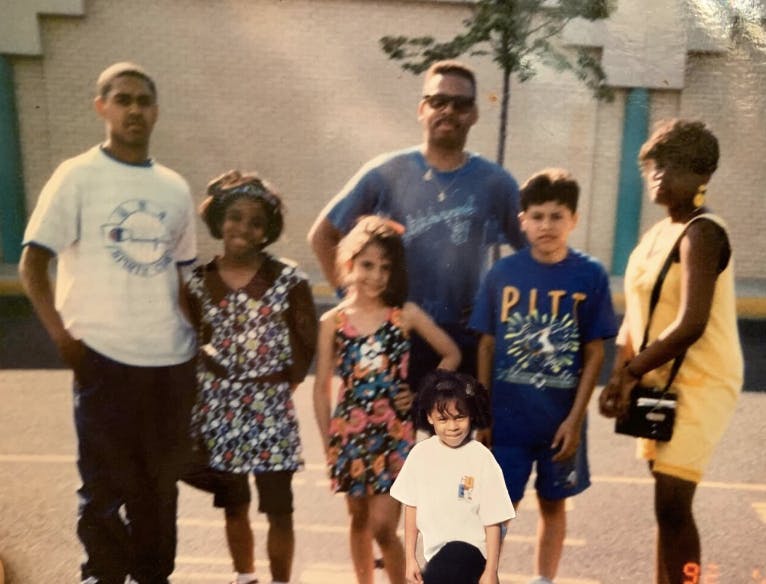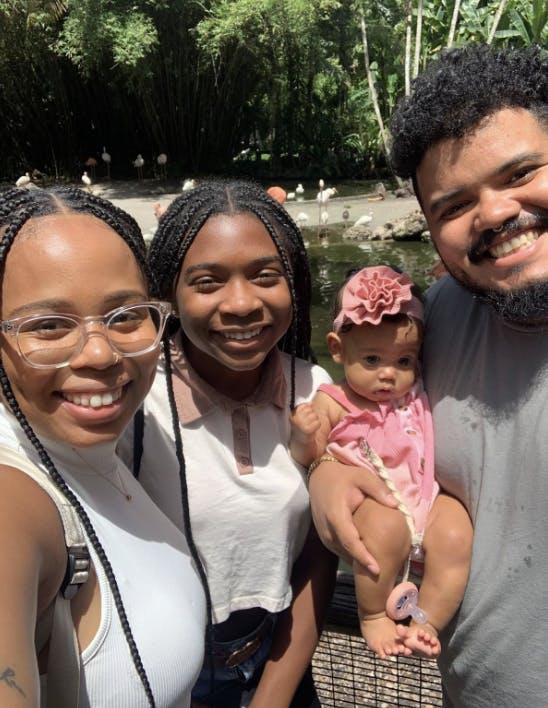February is Black History Month. It’s a time to reflect on and celebrate the struggles and triumphs of the black community and remember the importance of elevating black voices. Each year at MongoDB, we ask members of our employee resource group BEAM (Black Employees At MongoDB) if they’d like to share a personal story about their experiences and what this month means to them. This year, hear from Administrative Assistant Rita Henderson and Regional Director Daniel Hawthorne to learn more about their journeys into tech.
Rita Henderson: Breaking Down Barriers and Owning Technology for Social Justice
As we celebrate Black History Month, I am grateful for those who have paved the way for us to have a voice and fight for our rights. I am reminded of the struggles and achievements of black leaders throughout history. The fight for equal rights and justice is ongoing, and technology plays a crucial role in this fight. It is important to empower and uplift underrepresented communities in the tech industry to create a more inclusive and equitable future.
I am a proud member of the Afro-Latinx community from North Philadelphia. Growing up in a neighborhood called Badlands, I witnessed first-hand the impact and struggles of poverty, high crime rates, and drugs. I am the youngest of six children, with parents who worked two jobs to make ends meet. Despite my parents' hard work and dedication to provide for their children, life was still a struggle for my family. At the age of 17, after completing my junior year of High School, I became a teen mom. Unfortunately, society tries to shame young mothers, especially teen moms of color. Many people reminded me that teen pregnancy is closely linked to single parenthood and that growing up in single-parent families remains the largest factor in increased poverty among children.

As a teen mom, I was determined to break through the barriers society placed on me. With $200 in my pocket, I moved my daughter and I to western Pennsylvania and enrolled in Indiana University of Pennsylvania. There, I earned my bachelor's degree in Criminology and studied the school-to-prison pipeline in black communities. After the murder of the young unarmed black teenager, Mike Brown, and the Ferguson uprising, my sister and I collaborated with organizers in the Ferguson community to launch a free technology program to empower community organizers, educators, and youth with skill sets to create technology tools for social and economic justice.

I am influenced by the work of the Black Panther Party; specifically, the 10th Point of the party’s 10-Point Platform, “Community Control of Modern Technology”. For 45 years, the Black Panther Party included the right to learn, access, and control technology as a right. Huey said, "Knowing how to struggle is the essence of winning. Recognizing ills is fundamental; recognizing how to overcome ills is mandatory." That is why I believe it is critical for black and latinx people to understand the role technology plays in our society and the economy if we want to understand social justice and create tools for liberation.
When I hear people talk about technology in black, latinx, and working-class communities, they often use it as a scare tactic. The fear of data and control and the feeling that technology is too advanced and that we lack the knowledge and tools to participate can be overwhelming. However, it is crucial for our community to claim our place in the tech world. We need to change our thinking and know there is a place for us, just like there is for anyone else. I am grateful for MongoDB's value "embrace the power of differences" and creating a platform where underrepresented communities can share their stories, bring their ideas to the forefront, and be heard in the tech industry.
As we celebrate Black History Month, I am grateful for those who have paved the way for us to have a voice and fight for our rights. I am also thankful for the opportunities I have been given to make a difference in my community and empower others to do the same. With education and technology, we can continue breaking down barriers and striving for equality, justice, and liberation.

Daniel Hawthorne: Building a Career as a Black Man in Tech Sales
I was brought into the world with the odds against me, a black boy born in South Central Los Angeles in the 80s. However, I never felt that I was on my own. Throughout my entire life, God has choreographed my every step. At a very young age, my parents decided to move us to Austin, Texas where my grandparents were moving their church ministry. I was raised in Austin along with my two older brothers (Dante and Derrell), my younger sister (Amber), and my younger brother (Joseph).
My siblings called me the “golden child” because I was a mama’s boy and kept to myself. The elementary and middle schools that I attended in Austin were fairly diverse, and I seldomly experienced racism. In the 7th grade, my family moved to a suburb of North Austin that wasn’t as diverse, and racist experiences became much more frequent. It was then that I began to acknowledge that being black brought different treatment. There were moments I embraced my blackness, but others where I was more focused on adapting myself into someone I thought those in my non-diverse environment wanted me to be.
In middle school, the place to hang out was the Rec Center. I would run into kids from other schools, and we’d have the basketball gym to ourselves for a bit. Eventually, the older guys would take over the court, but I was good enough that I typically got to play with them. I remember observing them as they entered the gym. They’d be dressed in nice work clothes with Dell badges hanging from their shirts - the Rec Center was only five minutes from the Dell HQ - and that became an early image of what success looked like for me.
In high school and college, I started my career in sales with a few small gigs. I enjoyed it because I was typically one of the top sellers no matter what I sold. I even sold women’s shoes at one point! After graduating with my M.B.A, I had no idea what my next move would be. But then, that image of success popped into my head. I focused my attention on getting a sales job at Dell. Despite not having any experience in tech, I knew I could excel. Who knew that 10 years after my days on the Rec Center courts, I would land my first job in tech.
I joined the inside sales development team at Dell, and it was one of the most pivotal moments of my career. The job was intense. After a week of training, it was clear that I was the least technical in every room. But, I was determined to not let anyone outwork me. We were required to make over 100 outbound calls per day, but I quickly figured out how to achieve the true objective (10 scheduled virtual demonstrations in a week) in fewer calls. Through my efficiency, I helped form new standards and began to make a name for myself.
Being in sales development wasn’t my end goal. I knew I wanted to get into outside sales, so I began building relationships with some of the Dell outside sellers I worked with. During a coaching session with one of my mentors, who was also a minority, he shared some guidance that I wasn’t ready for. He told me that if I truly wanted to be in outside sales, I needed to lose my earrings because professional men didn’t wear them. Even though he and I understood that earrings didn’t define me, his guidance was that being a person of color meant I was already playing from behind, and that I should exhaust all things within my control to create as level a playing field as I possibly could. This theme would continue throughout my career.
Similar to when I was a kid in the non-diverse suburbs of Austin, as a black man in tech, I’ve felt heavy pressure to be a certain way to appease others. When I was first getting started, I hardly encountered sales folks that looked like me. I’d attend internal trainings and events where there might be one or two other black sellers out of 200+ people. In many ways, I felt that I was on an island and had to live through trial and error. I had a fear that being ‘too black’ would put me at an even greater disadvantage. I walked the line and was careful about what I said or did. I hardly engaged in extracurricular activities with co-workers, and when I did, I kept my guard up. So much of my energy and effort was exhausted into protecting my brand and trying to avoid negative stereotyping because of the color of my skin. I often think about how much more successful I could’ve been had I not felt obligated to focus on the things that never should’ve mattered.

As I stated before, God has led my path in life. Numerous times when I was unsure of the next turn to make, He introduced someone to provide direction. I’m truly grateful for the people who may not have looked like me, but provided me with valuable coaching that helped guide my career in tech. I joined MongoDB to help customers with their data transformations, but I didn’t expect that I would go through a transformation myself. I’ve never felt more empowered to just be myself, and through that, I’ve reached new levels of individual and team accomplishments. I was a direct seller for my first two years with the company, and after receiving coaching from peers and leaders around me, I stepped into management a year ago. This wasn’t necessarily a milestone or goal that I had set out for myself, but I came to the realization that there was tremendous value in helping other sellers (and their families) achieve new levels of success. What better company to step into leadership than at MongoDB.
Every company has employee resource groups nowadays, but the intentionality behind those groups at MongoDB is different. Our leadership team has leaned into those difficult, vulnerable discussions, sometimes simply to listen because they knew they didn’t have the answers. Even in those scenarios, they’d come up with relevant action that they could personally be responsible for. Despite the comfort zone I had created over the past 10+ years of watering down my blackness, our Sales team encourages individuality and has brought out the best version of me. It’s helped lift a giant weight off my back. I know I’m no longer starting from behind, and I don’t fear that folks are going to judge me. As I wrap-up my first year in sales leadership, I’ve noticed significant transformation in my personal development, and I’m excited that I get to continue taking on new challenges that will bring discomfort, but instill confidence that I can persevere.
As we celebrate Black History Month, I think about the opportunity I have to expose other members of the black community to a profession in sales. Our experiences and our perspectives are highly valued and necessary in order to build a better tech-centric future.
We’re passionate about cultivating a culture where people of all backgrounds, identities, and experiences feel valued and heard. Find your next career opportunity at MongoDB.